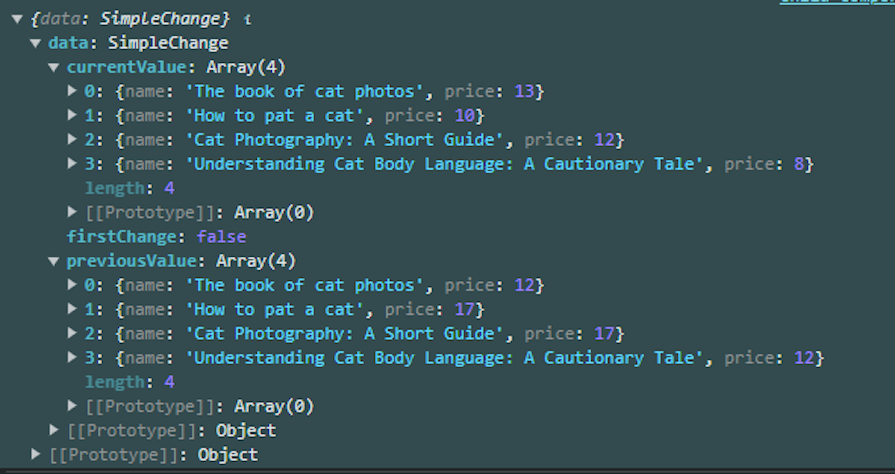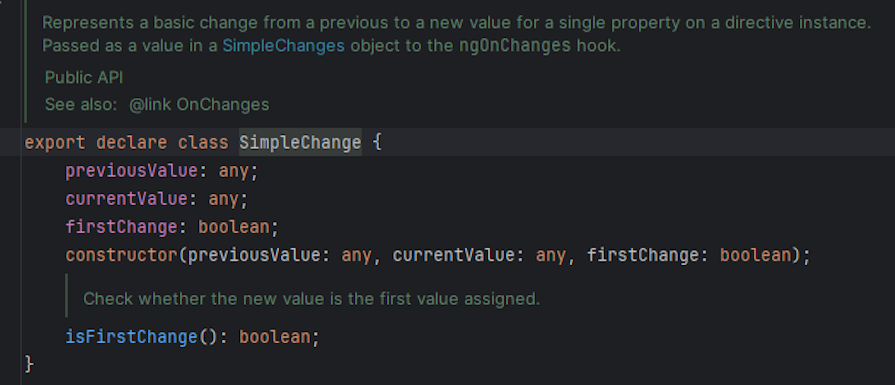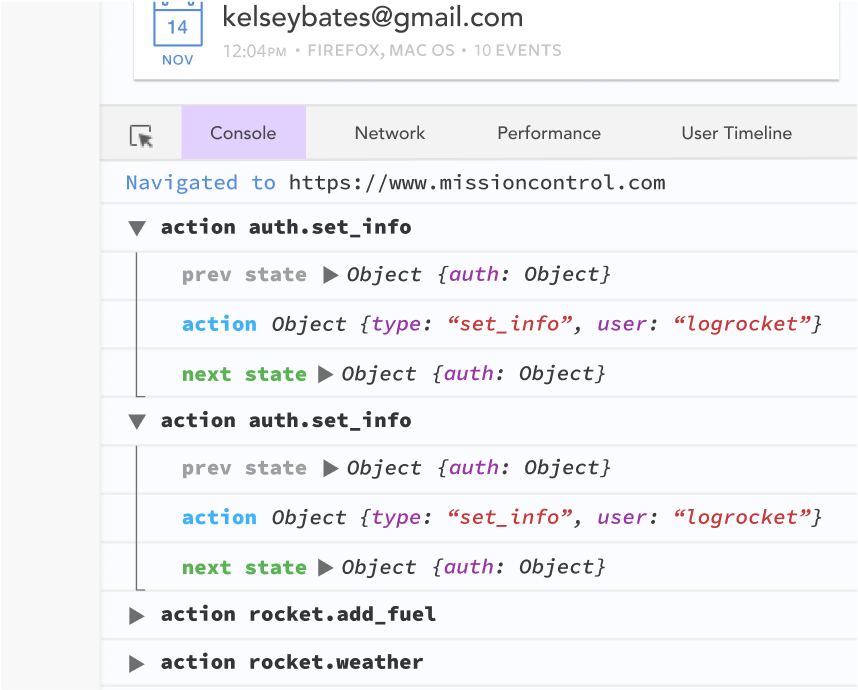
You know what framework just hasn’t stayed still lately? Angular. For a long time, nothing really seemed to change, and now we’re smack-bang in the middle of what some are calling the Angular Renaissance.

First up, we received signals, then control flow programming was added to templates. And now, signals are continuing to grow in Angular, spreading their wings into the area of state management.
Signals in components are now available in developer preview, and no doubt will be available for use in stable Angular before long.
The Replay is a weekly newsletter for dev and engineering leaders.
Delivered once a week, it's your curated guide to the most important conversations around frontend dev, emerging AI tools, and the state of modern software.
One of the core design principles of Angular, as compared to something like React, relates to how changes to the view are handled.
In a library like React, developers could modify properties that should be displayed on the page. However, the view would not update until setState() was called. Making the developer responsible for telling the framework when to redraw components can lead to a somewhat harder DX, but can also yield performance benefits.
Angular takes a different route by using data binding in the view. When a variable is updated in code, this causes Angular to redraw the affected view to reflect the changes. The developer doesn’t have to manually call something like setState(), as the framework tries to work it out internally.
The only caveat is that when text is rendered from a component to a view, it’s usually for simple objects like string or number. These data types obviously don’t have special functionality built in to notify when they have been updated.
In such cases, the responsibility falls to Angular itself to set up appropriate places where values within views can be updated as required. This is both complicated and fascinating to read about.
This all makes sense and works well for as long as we constrain ourselves to a single component. But the moment we add another component, and want to pass a variable into that component, the complexity is kicked up a notch.
How do we handle changes between bound data that occur in the child component? Let’s use a sample app to demonstrate the problem, and how signals in our components can help.
Let’s imagine we have an app that’s tracking the price of four different products. Over time, the price of the product can go up or down. It’s rudimentary, but will help us to understand the concept at hand. It looks like this:
![]()
The data is provided through an interval that updates every second. It stays subscribed until the component is destroyed. Until then, it updates the model with new random price data:
ngOnInit() {
this.timerSub = interval(1000)
.pipe(takeUntil(this.$destroying))
.subscribe(x => {
this.model = [
{
name: "The book of cat photos",
price: getRandomArbitrary(5, 15)
},
{
name: "How to pat a cat",
price: getRandomArbitrary(10, 40)
},
{
name: "Cat Photography: A Short Guide",
price: getRandomArbitrary(12, 20),
},
{
name: "Understanding Cat Body Language: A Cautionary Tale",
price: getRandomArbitrary(2, 15)
}
]
});
}
Next up, we also have our ChildComponent which shows the list of prices. It just accepts an Input() of type Array<PriceData>. Every second, the price data updates, and the update flows to our child component. Nice.
ngOnChanges in AngularBut now, we want to introduce an improvement. When the price goes up or down for individual items, we want to visually signify that to the user. Additionally, how much the product has gone up or down by should show.
Essentially, we are reacting to changes in the data. Before signal inputs, we’d have to implement the OnChanges interface in our component. Let’s go ahead and bring that in now:
export class ChildComponentComponent implements OnChanges {
ngOnChanges(changes: SimpleChanges): void {
console.log(changes);
}
@Input() data: Array<PriceData> | undefined;
}
Now we get notified each time the data has changed, and the output is logged. Let’s see how that helps us. Our console window can give us more insight:

First up, our data changes from undefined (previousValue) to the new value (currentValue):

On subsequent changes, the old data is updated to the new data. This repeats every time the value is changed on the component.
There’s nothing technically wrong with this approach. But in Angular, with TypeScript, whose main selling point is types, there’s certainly a lack of types being handed around. The types of previousValue and currentValue are just any:

To meet our requirements, this means we have to blindly cast from these types into types that we expect before we can work on the data. Our ngOnChanges becomes the following:

We likely started our Angular project with high hopes of using types, but this code almost immediately feels like a gutterball for two main reasons:
previousValue and currentValue into their respective types, with no idea as to how the implementor is populating these values. If we refactor the code tomorrow and change the type that comes into the component via the Input() directive, our code will stop working and we wouldn’t be sure whyRemember, this is in a simple application as well. If we were working on an app with any more complexity, it’s not hard to see how using ngOnChanges would become unwieldy.
We could introduce some techniques to help deal with it, but in reality, the changes coming into our component probably should have some sort of type, and should react appropriately when they are updated. Fortunately, that’s exactly what signals do.
Signals, introduced recently in Angular, can help us remove our dependency on ngOnChanges, and make it easier for us to achieve a better solution. Admittedly, bringing signals into this code does require a bit of reasoning, but leaves us with cleaner code that makes more sense.
If we were to break down what’s happening here in plain English, the description of the problem would be:
This helps us understand two key components to how we’ll solve this with signals.
First, using “when the x happens” language indicates that we’ll need to use an effect because we want something to happen when the signal changes — in this case, storing the old value to a variable.
Second, using a phrase like “and then compare” indicates that we want to compute a value that depends on the incoming value. Unsurprisingly, this means we’ll need to use a compute function.
Okay, let’s bring these changes into our component. First of all, we’ll need to remove the dependency we have on ngOnChanges, as that’s no longer a dependency of this change detection. Next, we’ll need some new properties for the data:
prices = input.required<Array<PriceData>>(); // The incoming price data oldPrices = Array<PriceData>();
effectAh, this is the easy part. Basically, whenever the prices update, we just want to store the last emitted value into an oldPrices variable. This happens in our constructor:
constructor() {
effect(() => {
this.oldPrices = this.prices();
});
}
Admittedly, it still feels weird at times calling prices like it’s a function, but it’s how we interact with signals. We receive an array of prices, which are immediately set to the oldPrices variable.
But if we’re just doing this every single time the value changes, how will we effectively compare the old and new values? Simple — we have to compute it.
computed functionWithin our computed function, we now have access to a fully type-safe instance of our prices and prices array. Whenever the prices signal changes, computed sees that the signal has changed, and updates the computed signals as required. The comparison occurs, and our new computed signal is returned:
priceDifferences = computed(() => {
let priceDelta = [
this.priceCompare(this.oldPrices[0], this.prices()[0]),
this.priceCompare(this.oldPrices[1], this.prices()[1]),
this.priceCompare(this.oldPrices[2], this.prices()[2]),
this.priceCompare(this.oldPrices[3], this.prices()[3]),
]
return priceDelta.map(x => ({
change: x,
direction: (x ?? 0) > 0 ? PriceDirection.Increasing : PriceDirection.Decreasing,
} as PriceDescription));
})
In our example, the computed function runs first, and then the effect function runs second. This means that the old and new values are stored and compared effectively.
It’s also worth mentioning that when I first wrote this code, I attempted to set a signal from the effect code and skip the computed signal altogether. That’s actually the wrong thing to do — and Angular won’t let you do it unless you change a setting — for a couple of reasons:
computed signals are read-only — they can’t be set by you. This makes sense when your computed signal is downstream from your other dataThe benefits of this approach is that our code has more type safety, and it makes more sense to read and understand. It also means that our components will work if our change detection is set to OnPush, and sets us up for Angular’s move away from using zones for change detection.
The other nice thing about this approach is that it actually solves a problem that a lot of Angular developers will probably have in the future.
Namely, with no ngOnChanges giving old and new values to identify what’s changed, how will we perform comparisons? Fortunately, it’s as easy as setting up an effect to store the old value, and then performing the comparison in a computed signal value.
Angular is evolving in some pretty exciting ways. In this tutorial, we explored how signals are growing in Angular to enhance state management.
To see how to use signals for better state management in Angular, we created a demo project and looked at the “old” approach using ngOnChanges as well as the improved approach using signals.
As always, you can clone the code yourself from this GitHub repo. You can use the commit history to change between a version of the app with ngOnChanges and the newer Signals implementation.
Debugging Angular applications can be difficult, especially when users experience issues that are difficult to reproduce. If you’re interested in monitoring and tracking Angular state and actions for all of your users in production, try LogRocket.

LogRocket lets you replay user sessions, eliminating guesswork by showing exactly what users experienced. It captures console logs, errors, network requests, and pixel-perfect DOM recordings—compatible with all frameworks.
With Galileo AI, you can instantly identify and explain user struggles with automated monitoring of your entire product experience.
The LogRocket NgRx plugin logs Angular state and actions to the LogRocket console, giving you context around what led to an error, and what state the application was in when an issue occurred.
Modernize how you debug your Angular apps — start monitoring for free.

Solve coordination problems in Islands architecture using event-driven patterns instead of localStorage polling.

Signal Forms in Angular 21 replace FormGroup pain and ControlValueAccessor complexity with a cleaner, reactive model built on signals.

Discover what’s new in The Replay, LogRocket’s newsletter for dev and engineering leaders, in the February 25th issue.

Explore how the Universal Commerce Protocol (UCP) allows AI agents to connect with merchants, handle checkout sessions, and securely process payments in real-world e-commerce flows.
Would you be interested in joining LogRocket's developer community?
Join LogRocket’s Content Advisory Board. You’ll help inform the type of content we create and get access to exclusive meetups, social accreditation, and swag.
Sign up now
2 Replies to "Signals vs. ngOnChanges for better Angular state management"
Very interesting and nicely written article, thanks. Maybe you could post the whole component code on the end of the post? I am not quite sure where priceDifferences is defined – is it a function within the component? Or maybe, you not being very clear on this point, forces me to try it immidiately and I’ll remember your article better.
Interesting post and nice comparison trick, thank you !
I’m new to signal and I was wondering what ensures that the computed property executes before the effect ?